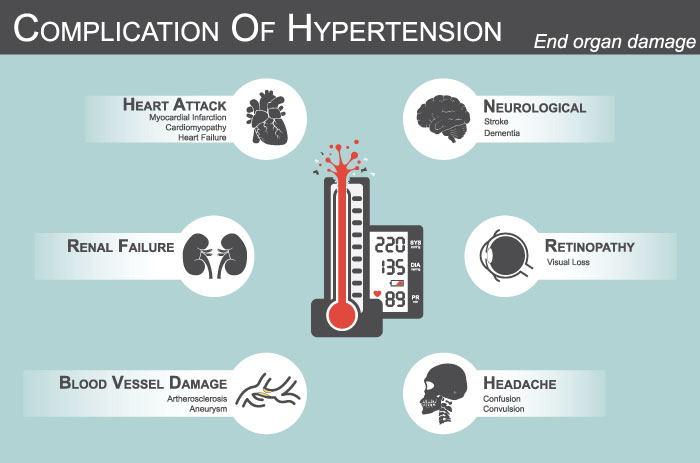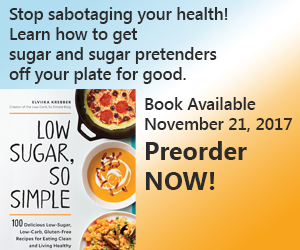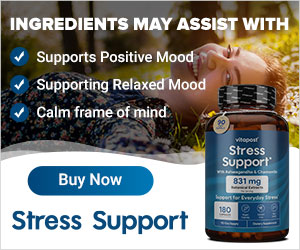High blood pressure may occur for many years without any symptoms. But even without symptoms, it can still cause serious health issues such as heart attacks and strokes. It is a serious health threat that should be addressed promptly to avoid more complications.
What is high blood pressure and what is wrong with the current definition of high blood pressure? What are the symptoms and how high blood pressure is developed? Does it affect your emotional state? Can high blood pressure cause anxiety? Or vice versa, can anxiety cause high blood pressure? Read on to know more.
First of All, What Is High Blood Pressure?
Also known as hypertension, high blood pressure occurs when the force of the blood that pushes against the arteries of the heart is too high. This higher pressure causes extra strain which increases the risk of heart disease and stroke.
Beat your anxiety already today with this guaranteed method!
How to Determine Your Blood Pressure?
Health care workers use stethoscope or electronic sensor and a blood pressure cuff to determine one’s blood pressure. They measure two types of pressure: systolic pressure which is the blood pressure when the heart beats while pumping blood, and diastolic pressure which is the blood pressure when the heart is at rest. It is advised to regularly have your blood pressure checked.
I also cannot emphasize enough having a reliable blood pressure monitor at home. When you measure your blood pressure in the comfort of your home, you get more reliable results as people often suffer from “white coat syndrome“, meaning that you get high readings because you get nervous when doctor or nurse is measuring your blood pressure. Just because you are afraid that you have high blood pressure, you indeed might get high readings even in the normal situation your blood pressure is in the normal range. That’s why owning a high-quality blood pressure monitor is worth gold. After talking with several doctors, we have been recommended Omron M6 which is often used by doctors as well. We bought our M6 several years ago and it still does a very reliable job, saving us lots of doctor visits and pure money, not forgetting rescuing us from anxiousness and white coat syndrome.
What Is the Normal Baseline Range of Blood Pressure?
With current definition, normal blood pressure for adults is 120 over 80. It is normal to change depending on the activity you do. When you are active, your blood pressure normally increases but it returns to the normal baseline range once you get rest. Blood pressure also depends on the size of the body and age. Newborn babies have very low blood pressure while teens have almost the same as the adults have.
What Are the Ranges for Abnormal Blood Pressure?
If your blood pressure is higher than 120/80 mmHg, then you have hypertension according to the current definition. High blood pressures have different severity levels: prehypertension if you have 120-139 or 80-89, high blood pressure stage 1 if you have 140-159 or 90-99, and high blood pressure stage 2 if you have 160 or higher, or 100 or higher. However, reliable sources (and one of my favorite authors) state that due to the overmedicalization today, normal blood pressure has been defined as high blood pressure, and thus everyone who has high blood pressure according to these new guidelines shall be medicated, even their blood pressure is indeed normal. I cannot help but agree.
How Does High Blood Pressure Affect You?
But if you have truly high blood pressure, it can cause several complications on the vital parts of body and also more serious health problems if not addressed as soon as possible. One of the effects is narrowed and damaged arteries. Arteries are strong and elastic and their inner lining is smooth to keep the blood freely flowing and supplying oxygen and nutrients to different organs of the body. The abnormal increase in the pressure of blood through these arteries can cause damaged cells in the inner linings. It will cause arteriosclerosis or the thickening of artery walls, or atherosclerosis or the hardening of the arteries.
Untreated high blood pressure may also cause damage to the heart (coronary artery disease, enlarged left heart, and heart failure), brain (dementia and stroke), and kidneys (kidney artery aneurysm, kidney scarring, and kidney failure).

Can High Blood Pressure Cause Anxiety?
While there is no clear link between long lasting health problem and anxiety symptoms, one of the concerns linked to high blood pressure is anxiety. Since hypertension is caused by many factors such as age, family history, weight, and gender, it is difficult to determine if anxiety is caused by high blood pressure. Only doctors can diagnose if your high blood pressure is caused by anxiety or by a more serious health problem.
Whether Your Anxiety Is by Hypertension Caused or Not…
Regardless of the cause of anxiety, it should be under your control. If you get anxious every day, you put yourself in a stressful situation that may cause several health problems, not only high blood pressure. So it is important to reduce anxiety and stress not only to make life happier and lighter, but to make yourself healthier too.
How Does Anxiety Cause High Blood Pressure?
Anxiety increases heart rate and constricts blood vessels. It doesn’t permanently change your body or cause high blood pressure; rather it causes spikes in blood pressure that last until anxiety dispels. Thus, people with high anxiety often have high blood pressure, but this blood pressure returns to its normal baseline range once people get rid of anxiety. Blood pressure changes all throughout the day depending on how we feel and what we’re doing. I’ve written a whole post about anxiety causing high blood pressure, you can find it here.
…And Vice Versa, High Blood Pressure also Causes Anxiety
It may be possible that blood pressure causes anxiety only because this anxiety is caused by worrying about blood pressure. If a person is already anxious and finds out that they have high blood pressure, they tend to worry more about their high blood pressure. High blood pressure on its own doesn’t cause any symptoms so people usually don’t realize they have high blood pressure. But if the blood pressure is caused by other serious health problems, the person may feel more anxious.
How to Know More About Your Anxiety?
If you regularly feel anxiety, it is better to know more about it by having anxiety tests. This will help you look at the symptoms, how your anxiety affects you, and gives you ideas for how to fight anxiety.
Get Help
You can never go wrong with talking to your doctor about your blood pressure concerns. Get help but don’t be too concerned. Remember, when you worry more about your blood pressure, you will likely suffer anxiety causing blood pressure spikes. Blood pressure spikes should not be worried about by people with normal health but should be a concern to those with heart diseases. For people with heart diseases, high blood pressure puts stress on the heart and may have negative effects on the blood vessels, so it is advised to reduce stress and anxiety.
Get guaranteed help to your anxiety now!
What Can You Do About High Blood Pressure?
Seeking medical help is never a bad decision. When you feel something wrong changed in your body or mood, such as unusual shortness of breath, decreased/increased appetite, and anxiety, you should consult your doctor. Knowing the cause of symptoms will help you address your health concerns. Also, having your blood pressure checked every now and then will help you monitor your blood pressure, put you at ease and reduce your anxiety. Measuring your blood pressure in the comfort of your home has several advantages.
Last but not least, never underestimate the healing effect of properly designed diet. Reducing sugar (also fruits and fruit juices), starch, margarines and vegetable oils (like canola oil, sunflower seed oil, soy oil or corn oil) to the minimum will surely give you better blood pressure measurements. Eat only real food, and don’t be afraid of salt as long as it is unrefined sea salt or Himalayan salt with all minerals included, nothing removed. Natural fats like butter, lard, avocados, coconut oil or olive oil will keep your arteries flexible and the amount of plaque to the minimum. Natural fats will protect your heart in the very best way.







4 Comments